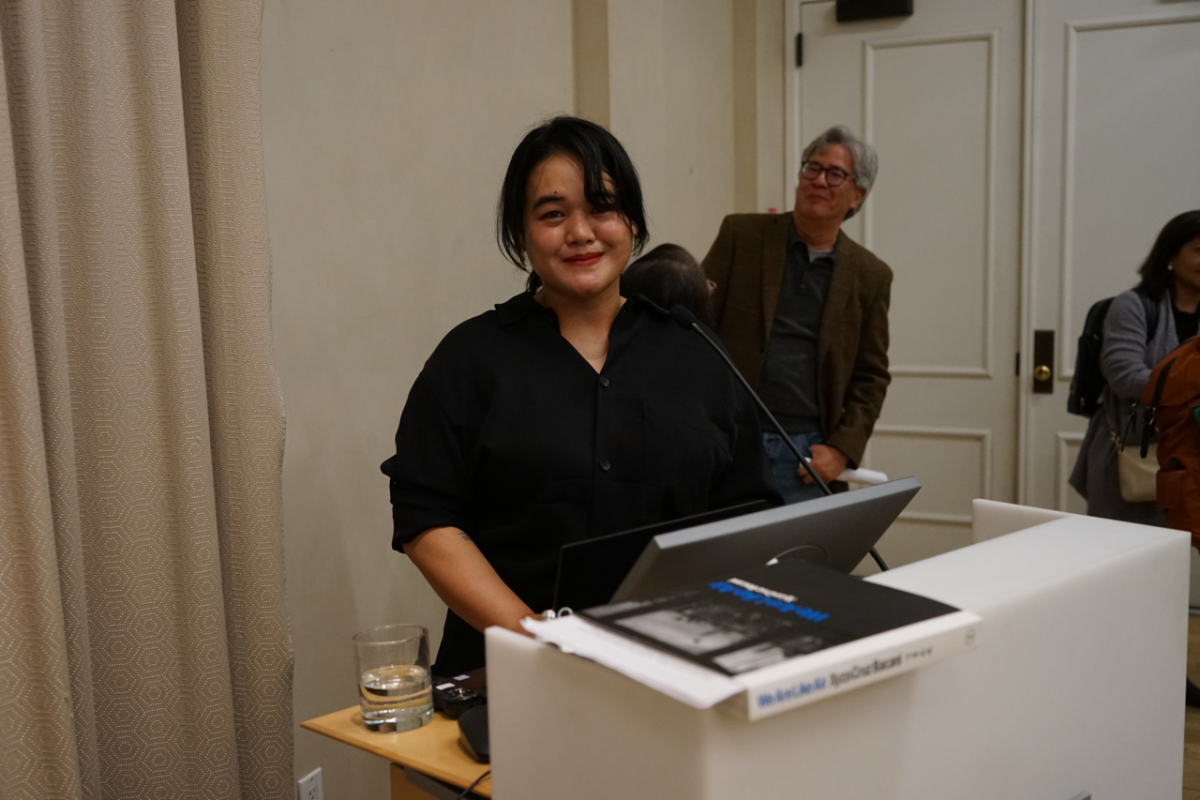On Monday, Jan. 29, the NYU Abu Dhabi Institute in New York displayed a project by artist Xyza Cruz Bacani titled “Komunidad: Filipinos in the UAE.” Bacani, a Filipina photographer who received her M.A. in Arts Politics in 2022, focuses on using her art as a way to showcase underrepresented stories.
NYU Abu Dhabi’s Akkasah: Photography Archive in NYU’s Special Collections commissioned Bacani to do a documentary photography project in 2015 on Filipino workers living and working in the United Arab Emirates. Sulo: The Philippine Studies Initiative at NYU, New York Southeast Asia Network and the King Juan Carlos I of Spain Center also co-sponsored the project.
The exhibition showcases the lives of five different individuals who represent the Filipino diaspora in the UAE. Along with documenting their experience in the UAE, Bacani also followed them back to the Philippines to explore their home lives.
Bacani’s work highlights the community that workers find while working away from home in the UAE. She shares images of her collaborators going to church together and enjoying traditional Filipino food. Images also show them gathering together to celebrate holidays and participating in other events, such as sports and singing. Although they are far from their homes, these individuals find connection to the Philippines through the relationships created abroad.
One of the collaborators featured in her photography is Judjet, who was a facility manager at NYU Abu Dhabi during the time Bacani was working on her project. Judjet’s daughter was born in the UAE and although she was not able to receive UAE citizenship, both of them were given a residency permit, and therefore giving them education and healthcare benefits.
When considering the composition of her documentary photography, Bacani chose to shoot in black and white to focus on and highlight the emotional aspect of migration experienced by Filipino workers. The dark color palette alludes to the pain and sacrifice of the immigrant experience, while the content contrastingly shows moments of community and perseverance. The images are mundane and yet striking in their simplicity.
During her presentation of the exhibition, Bacani shared her personal experiences of being a child of a foreign domestic worker, and the difficulties of growing up without her mother. Children of foreign workers often grow up without their parents and typically see them for brief visits every few years. At 19 years old, Bacani followed her mother to Hong Kong and became a domestic worker, working alongside her. After years of separation from her mother, she describes the difficult transition for both of them in learning how to develop a mother-daughter relationship.
Bacani’s personal story represents an experience that is known to many Filipino foreign workers and their families. When these stories are told, they highlight the abuses and violence inflicted upon Filipino workers rather than representing the agency these individuals hold. But these narratives are simultaneously experiences of love and sacrifice. Bacani also displays how these are portraits of community, identity and diaspora. These complex stories of foreign workers are often invisible and unfortunately are dismissed by society.
There are roughly 700,000 foreign workers from the Philippines in the UAE. Additionally, around 10% of the Philippines population works abroad, and the income they make represents a significant portion of the Philippine economy. The state encourages working abroad because it supports the country’s GDP and it signifies upward mobility for those who go to foreign countries for work. The UAE offers foreign workers better wages than they would receive in their home countries and some cities, like Abu Dhabi, are appealing because they offer a better work-life balance for workers and their families.
Properly representing Filipino workers gives them dignity in the work they do and the amount of their life that they sacrifice.
“We see their work as crucial as others, and we can easily empathize with their experiences,” Bacani said in her presentation of the exhibition.
Bacani’s art is self-reflexive in that while she is documenting the lives of Filipino workers in the UAE, she is also representing her story and experiences of being a second-generation domestic worker. Not only is her work personal, but it is also political; it aims to dismantle imperialist and capitalist definitions and representations of Filipino workers. She challenges the assigned identity that is often placed on Filipino workers by society and showcases that their job is not their identity.
“Language is power,” Bacani said. “When we put dignity to the words we describe the migrant experience, it changes our perception of their personhood and what they do for a living.”
Contact Leila Anderson at [email protected].























































































































































